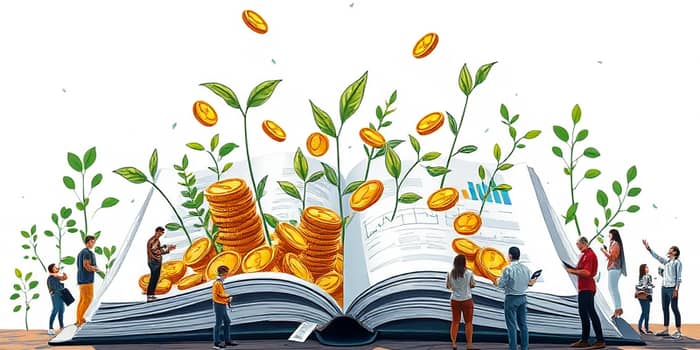
Financial literacy stands at the intersection of knowledge and opportunity, offering a pathway to stability, security, and long-term growth. By mastering essential money skills, individuals can transform their financial destinies and build resilient futures.
At its core, financial literacy refers to the ability to handle money effectively with confidence. It encompasses understanding how to budget, manage debt, choose financial products, and make informed investment decisions. Without these skills, even high incomes can dissipate under poor planning.
Globally, only about 33% of adults possess foundational money management skills, highlighting a massive gap in economic empowerment. In communities where literacy is low, families often struggle with avoidable debt and missed opportunities for growth.
Investing time in money education yields profound advantages. Financially literate individuals enjoy greater peace of mind and can:
Such benefits translate into measurable outcomes: higher savings rates, stronger investment portfolios, and improved credit scores.
Becoming financially literate involves mastering several foundational ideas:
These skills serve as a toolkit for everyday decisions, from choosing the right mortgage to evaluating retirement fund options.
Despite its clear value, access to financial education remains uneven. Younger adults, low-income households, and those with limited formal education often face greater obstacles in obtaining reliable information.
Socio-economic factors—such as family background and community resources—play key roles. In areas with scarce banking services, individuals may rely on high-cost alternatives, perpetuating cycles of debt.
When individuals grasp money concepts, they can pursue opportunities that lead to genuine wealth growth. Studies indicate that financially literate people accumulate up to 40% higher net worth over time compared to less knowledgeable peers.
Moreover, strong money skills foster build economic resilience in downturns. By holding emergency savings and diversified investments, literate individuals weather job losses, medical crises, or market downturns with reduced stress.
Organizations like the S&P Global FinLit Survey reveal where gaps persist and guide targeted interventions. Governments and NGOs are now introducing mandatory financial education in schools and community centers.
Policy initiatives are expanding access to digital tools, mobile banking, and budgeting apps that simplify complex concepts. By democratizing resources, these efforts aim to close the literacy gap and empower broader populations.
Financial literacy is not merely an optional skill—it is the cornerstone of lasting wealth and security. By mastering budgeting, debt management, and investment fundamentals, individuals unlock growth potential and safeguard their futures.
Through education, policy support, and personal commitment, we can bridge gaps, reduce disparities, and cultivate a world where everyone has the opportunity to prosper. The journey begins with a single step: embracing the power of financial knowledge today.













